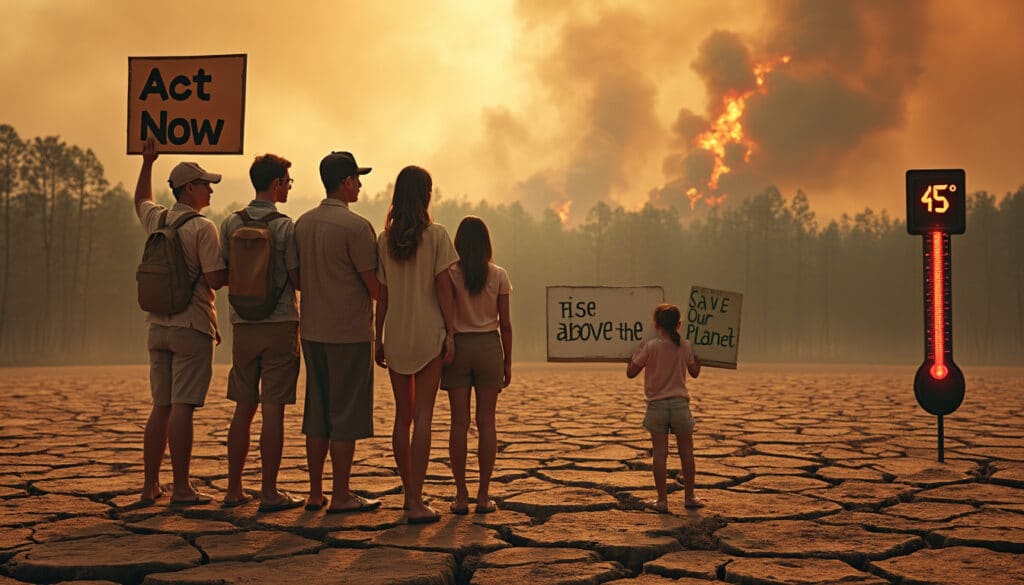In 2024, the planet experienced a record rise in temperature, surpassing for the first time the critical threshold of 1.5°C above pre-industrial levels. This significant increase, primarily driven by the combustion of fossil fuels, has intensified extreme weather events, resulting in devastating consequences for millions of people. The continued exploitation of coal, oil, and gas amplifies global climate impacts, illustrating the urgency for a transition to sustainable energy solutions.
In 2024, climate warming reached unprecedented levels, exceeding for the first time the threshold of 1.5°C above pre-industrial levels. This situation was exacerbated by extreme weather conditions such as heatwaves and intense precipitation, contributing to natural disasters around the world. The devastating effects of this record heat highlight the urgent need to reduce the use of fossil fuels to limit temperature rise. Tragic events like the floods in Valencia, hurricanes in the United States, and typhoons in the Philippines illustrate the intensification of climate danger.

an alarming rise in global temperatures in 2024
In 2024, the average global temperature exceeded for the first time the internationally agreed limit of 1.5°C above pre-industrial levels. This increase signifies accelerated warming leading to extreme climatic phenomena and causing “suffering to millions of people” around the world. Data from the European Copernicus Climate Change Service show an average of 1.6°C above pre-industrial levels, an increase of 0.1°C compared to 2023, a year already recognized as the hottest ever recorded.
the devastating impacts of climate warming
The continued use of fossil fuels mainly fuels this rise in temperatures, severely affecting lives and livelihoods. As a result, 2024 saw a multitude of disasters exacerbated by climate change. Among them, floods in Valencia, hurricanes in the United States, typhoons in the Philippines, and droughts in the Amazon, amplifying the urgency for coordinated global action against warming.
towards a more sustainable energy future
The energy transition is crucial to mitigate this acute climate crisis. Renewable energies, such as wind and solar, offer a viable and cheaper alternative compared to fossil fuels in many countries. In 2024, carbon emissions reached new concerning highs, underlining the importance of honoring commitments made at the climate conference in Dubai. A commitment to drastically reduce these emissions by 2030 is essential to limit warming to 1.5°C in the long term.
Articles similaires
Thank you!
We will contact you soon.














